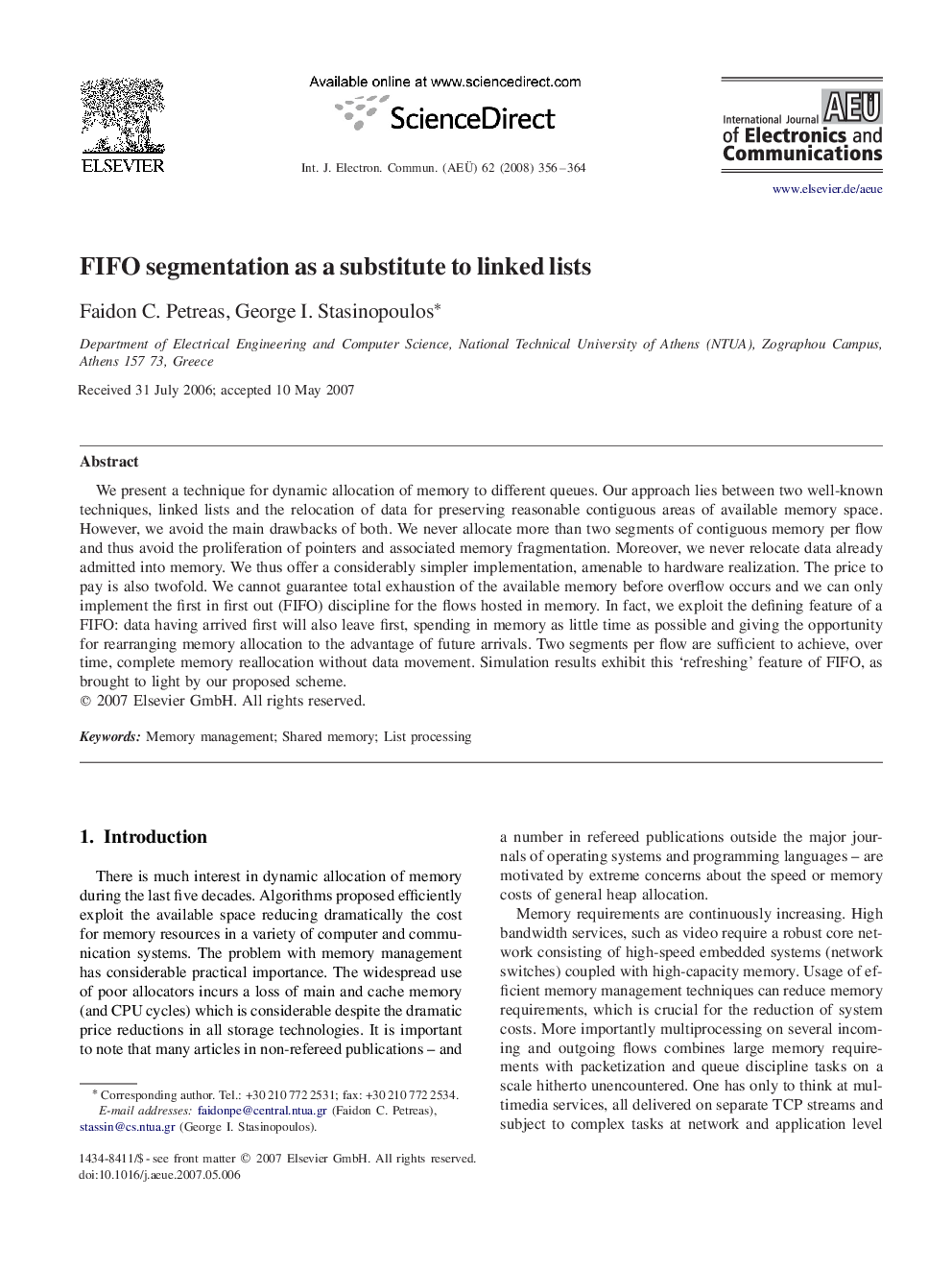| Article ID | Journal | Published Year | Pages | File Type |
|---|---|---|---|---|
| 445372 | AEU - International Journal of Electronics and Communications | 2008 | 9 Pages |
We present a technique for dynamic allocation of memory to different queues. Our approach lies between two well-known techniques, linked lists and the relocation of data for preserving reasonable contiguous areas of available memory space. However, we avoid the main drawbacks of both. We never allocate more than two segments of contiguous memory per flow and thus avoid the proliferation of pointers and associated memory fragmentation. Moreover, we never relocate data already admitted into memory. We thus offer a considerably simpler implementation, amenable to hardware realization. The price to pay is also twofold. We cannot guarantee total exhaustion of the available memory before overflow occurs and we can only implement the first in first out (FIFO) discipline for the flows hosted in memory. In fact, we exploit the defining feature of a FIFO: data having arrived first will also leave first, spending in memory as little time as possible and giving the opportunity for rearranging memory allocation to the advantage of future arrivals. Two segments per flow are sufficient to achieve, over time, complete memory reallocation without data movement. Simulation results exhibit this ‘refreshing’ feature of FIFO, as brought to light by our proposed scheme.
